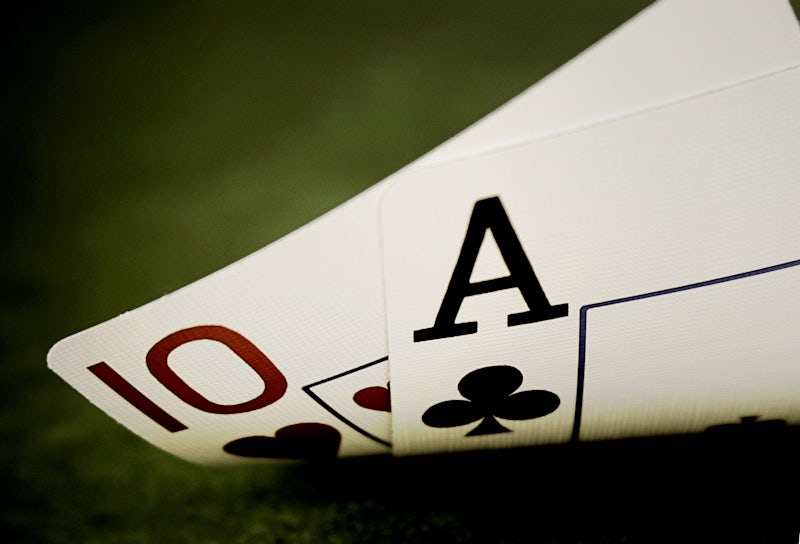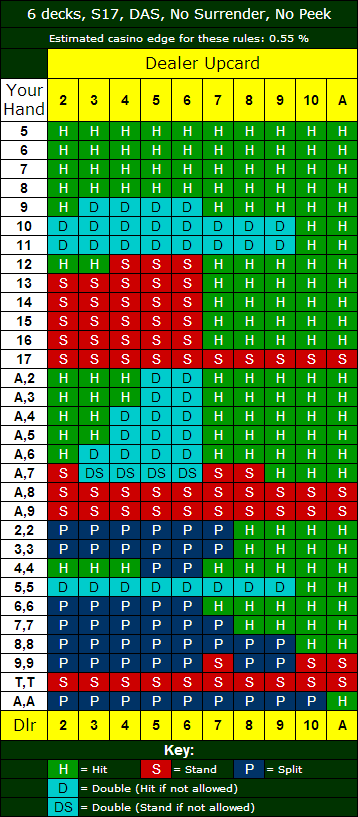Surrender is probably one of the most confusing rules in Blackjack. It allows players to give up on a hand when they believe that they cannot beat the dealer and save half of their original bet. However, to make use of this rule, one must know when they should go for it. There are two options when it comes to this rule in Blackjack, early and late surrender. Knowing whether you should play early or late surrender makes all the difference, so let's learn more about the rule and how to make the most of it.
How Early Surrender Works?
Just like its name suggests, early surrender is giving up on your hand immediately after you receive the first two cards and before you know whether the dealer has a natural Blackjack. It comes at a price of half of your original bet. While it is considered the most desirable way of surrender, it is not always available at Blackjack tables. However, the good news is that you can still find it at online casinos.
The bottom line is that you should only surrender blackjack hands when your chances of winning are less than 25% (this means the casino has a greater than 50% of beating you). If the casino's edge is greater than 50% than you are better off to surrender half (or 50%) of your bet. When You Should Surrender in Blackjack Generally, for Blackjack with surrender solution enabled, the dealer stands on 17. Thus, it would be best if you always surrendered on: Dealer's Ace, 9, 10 if you have a hard 16 (except 8-8, when it is better to split). If you're playing in a double-deck game, don't hit when you have a 9 and the dealer has 2. If you have an 11 against the dealer's ace, don't hit either. In both cases, you should double down. And lastly, if you're playing in a single-deck game, double down under the following circumstances: You have 8.
/cdn.vox-cdn.com/uploads/chorus_asset/file/9621033/f3efd9bd173b25c8.png)


Of course, in this scenario, should the dealer have blackjack, the player loses the hand in full without having the opportunity to complete their surrender. Early surrender rules are better for the player, as we shall discuss in more detail when we look at how the rule affects the house edge in general.
What makes early surrender particularly attractive is the fact that it reduces the house edge by 0.63%. If you have found a Blackjack game that offers early surrender, you should use this rule in the following situations:
- The dealer has an A and you have been dealt a hard 5-7 or 12-17
- The dealer has an A and you have been dealt a pair of 3s, 6s, 7s or 8s
- The dealer has a card worth 10 and you have been dealt a hard 14-16 or a pair of 7s or 8s
- If 2 decks are in play, the dealer has a soft 17 and you have received a pair of 2s.
These are the situations in which you should not go for early surrender:
- When you play a single-deck Blackjack game, never surrender on a card worth 10 when the dealer has a 4 and 10 or a 5 and 9
- In a 2-deck game, never surrender on a card worth 10 when the dealer has a 4 and 10.
How Late Surrender Works?
Late surrender comes at the same cost as an early surrender – half of your initial bet. However, just like its name says, you play it after you see whether the dealer has a natural Blackjack. If the dealer has been dealt a natural Blackjack, you won't be able to surrender. In this case, you lose your original bet, just like you haven't played surrender. In effect, this rule won't decrease the house edge as early surrender does. According to some sources, the late surrender rule lowers the house edge by 0.1% only.
Here are the situations in which you should play late surrender:
- The dealer has an A or a card worth 10 and you have been dealt a hand worth 15
- The dealer has an A or a card worth 10 and you have been dealt a hand worth 16 including a pair of 8s
- The dealer has an A and you have been dealt a hand worth 17
In these cases, you should not go for late surrender:
When Can You Surrender In Blackjack
- When you play a single-deck Blackjack and the dealer stands on a soft 17, don't play a late surrender when the dealer has a 9, 10 or an A and your hand is worth 15
- When you play a single-deck game and the dealer has a 9 and your hand is worth 16
- When you play a single-deck Blackjack game with the dealer standing on a soft 17, don't play a late surrender when the dealer has a 9 or 10 and your hand is worth 17.
Online Blackjack With Surrender
To learn more about Blackjack Surrender and give it a try, click here!
